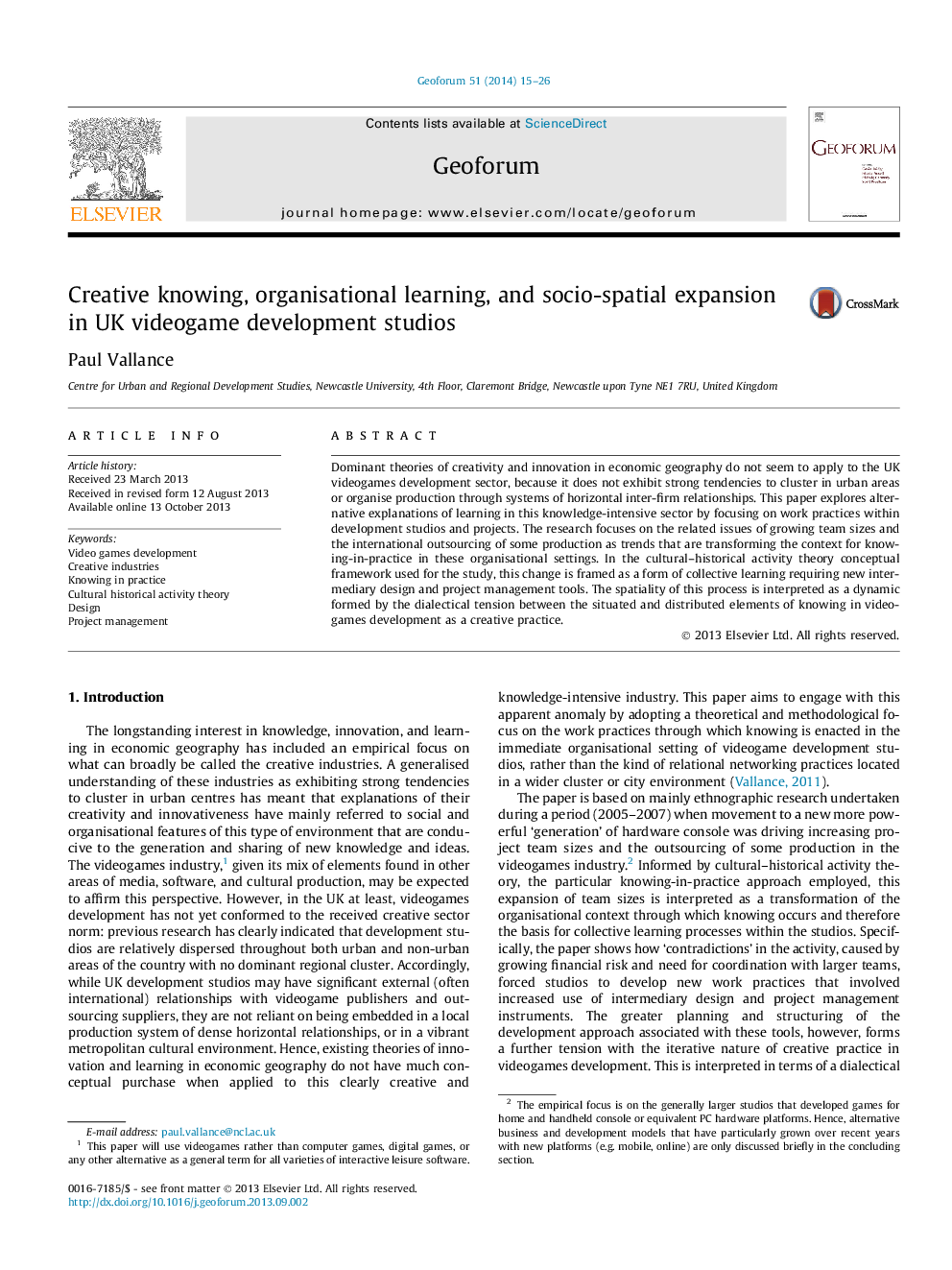| Article ID | Journal | Published Year | Pages | File Type |
|---|---|---|---|---|
| 5073894 | Geoforum | 2014 | 12 Pages |
â¢Economic geography theories of learning do not fit UK videogames development sector.â¢Focus on creative knowing through work practices as an alternative.â¢Growing team sizes and outsourcing transforming organisational context.â¢Spatiality analysed as tension between situated and distributed knowing.
Dominant theories of creativity and innovation in economic geography do not seem to apply to the UK videogames development sector, because it does not exhibit strong tendencies to cluster in urban areas or organise production through systems of horizontal inter-firm relationships. This paper explores alternative explanations of learning in this knowledge-intensive sector by focusing on work practices within development studios and projects. The research focuses on the related issues of growing team sizes and the international outsourcing of some production as trends that are transforming the context for knowing-in-practice in these organisational settings. In the cultural-historical activity theory conceptual framework used for the study, this change is framed as a form of collective learning requiring new intermediary design and project management tools. The spatiality of this process is interpreted as a dynamic formed by the dialectical tension between the situated and distributed elements of knowing in videogames development as a creative practice.
